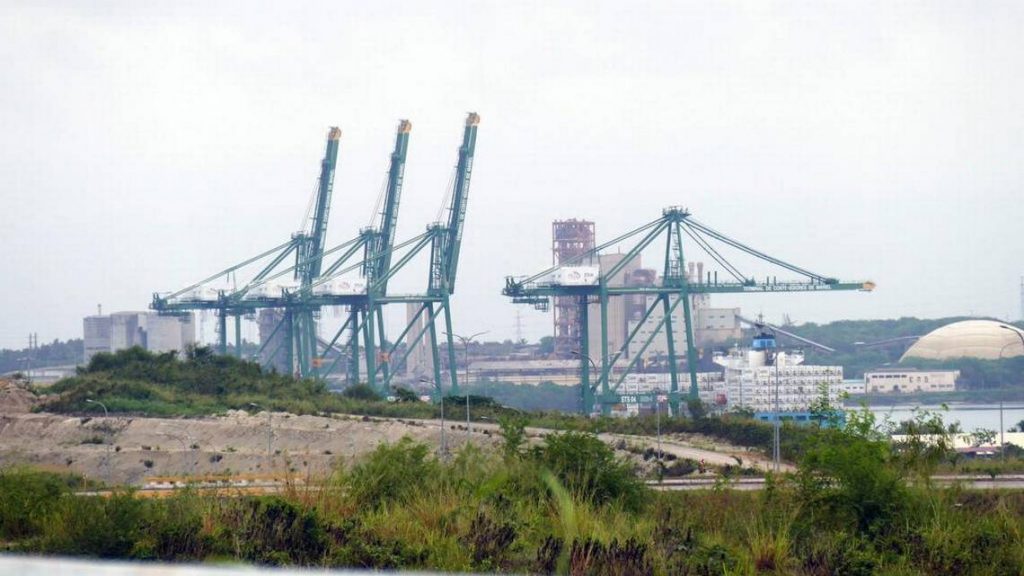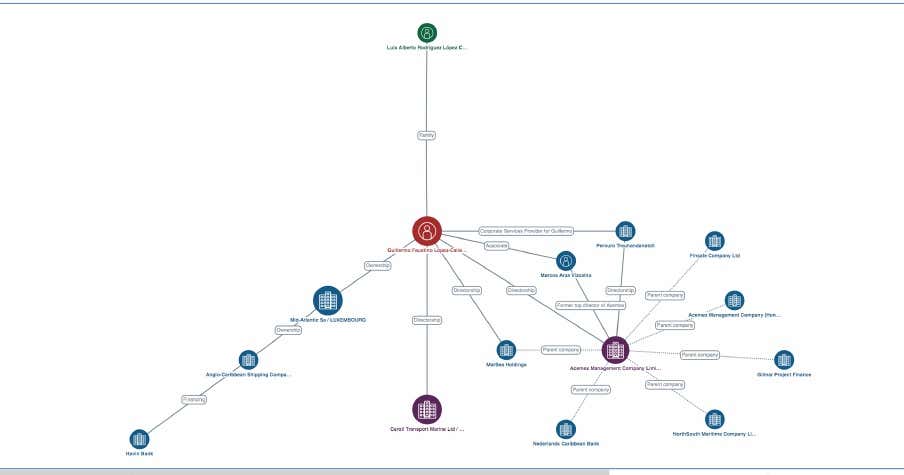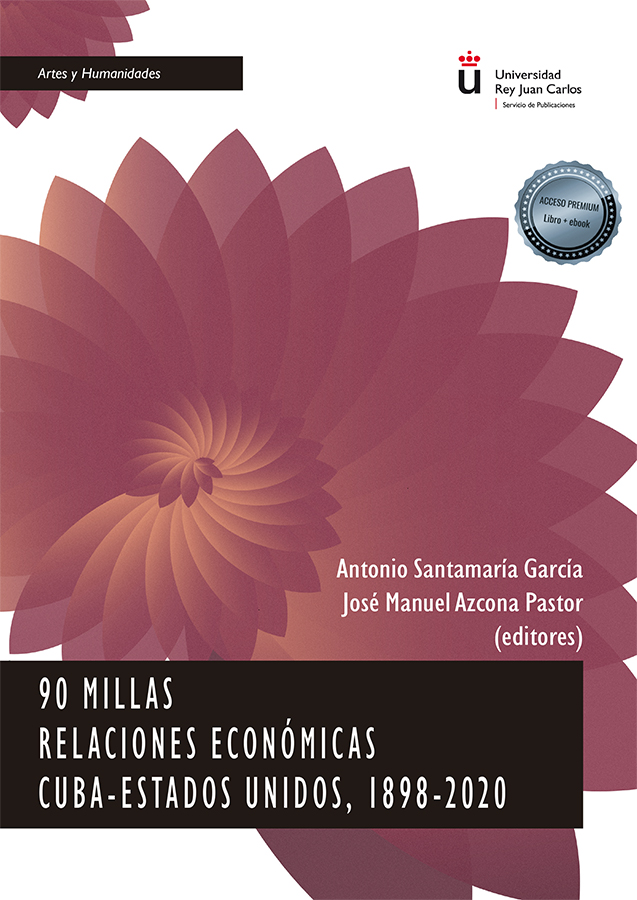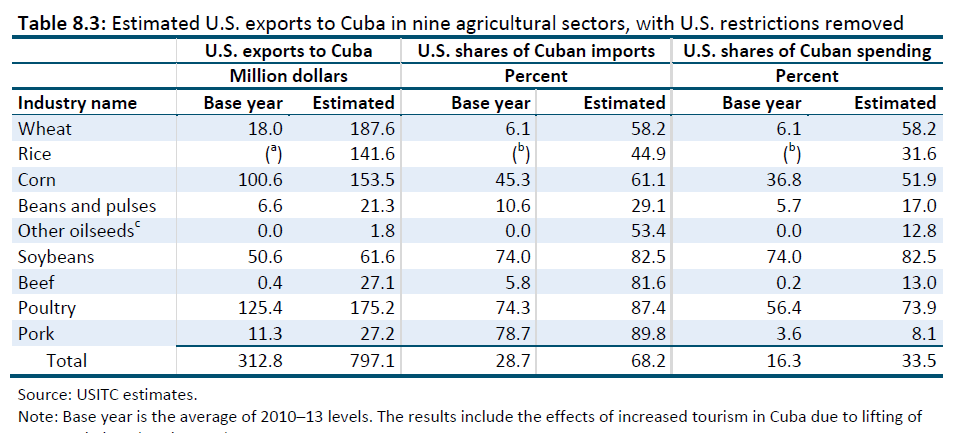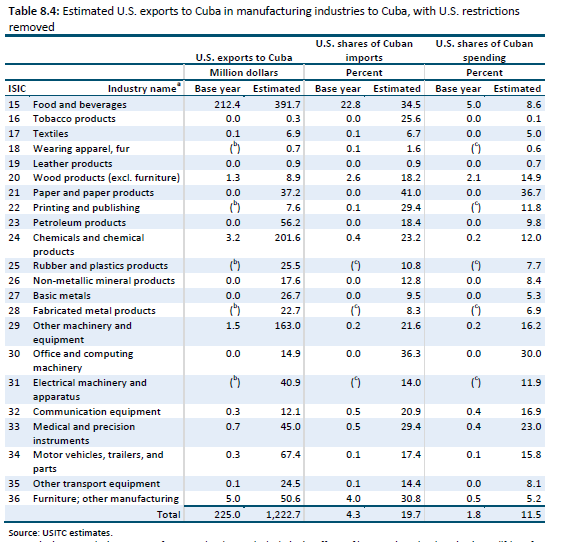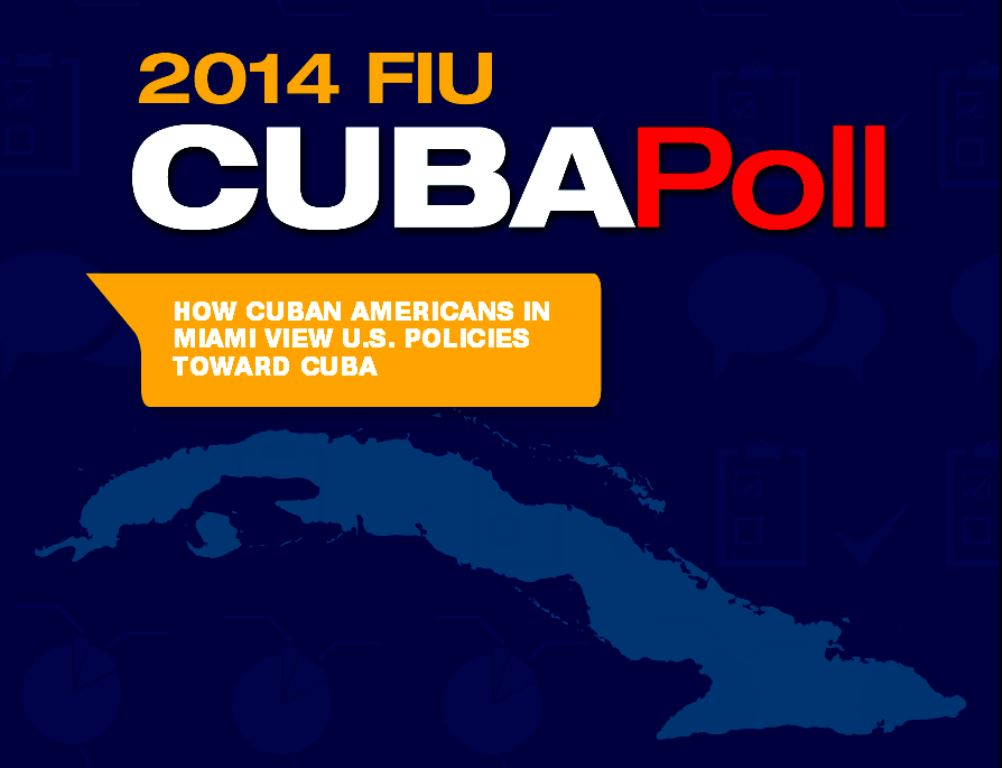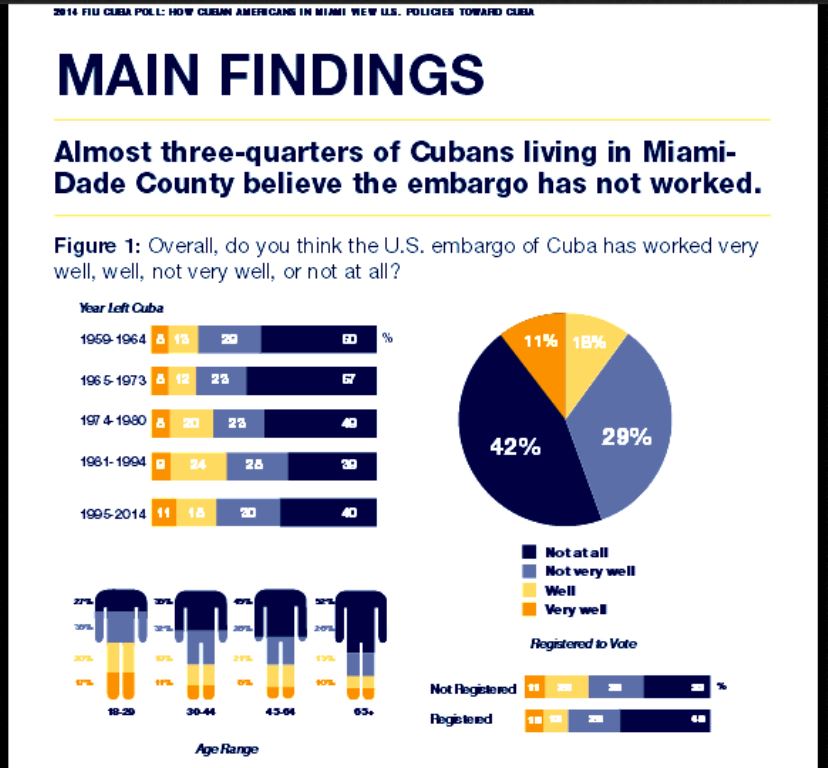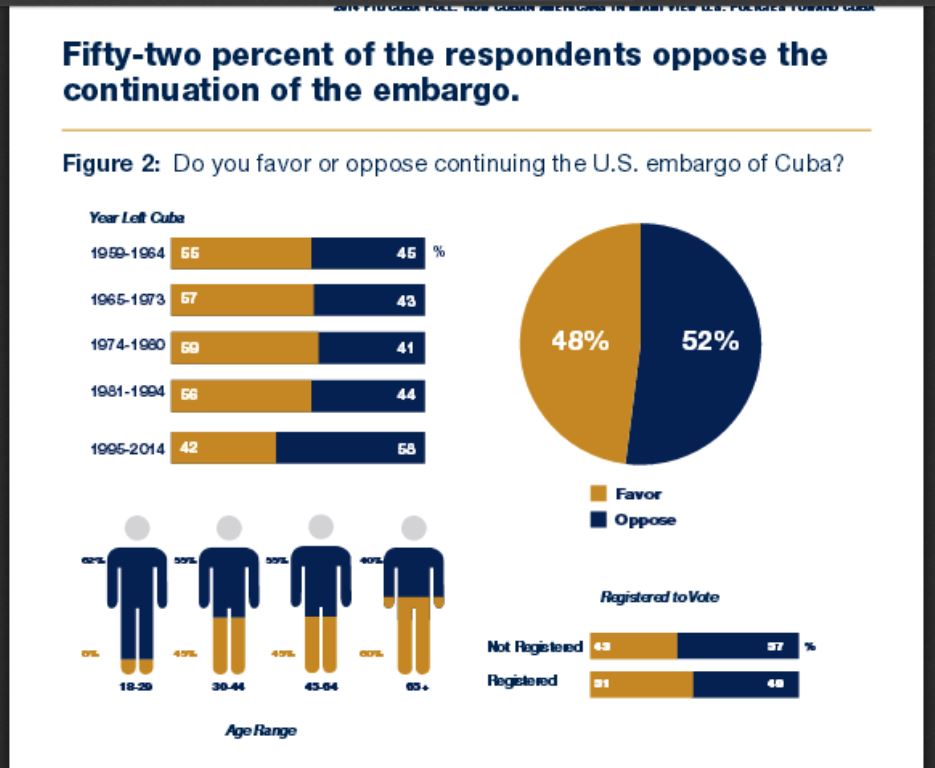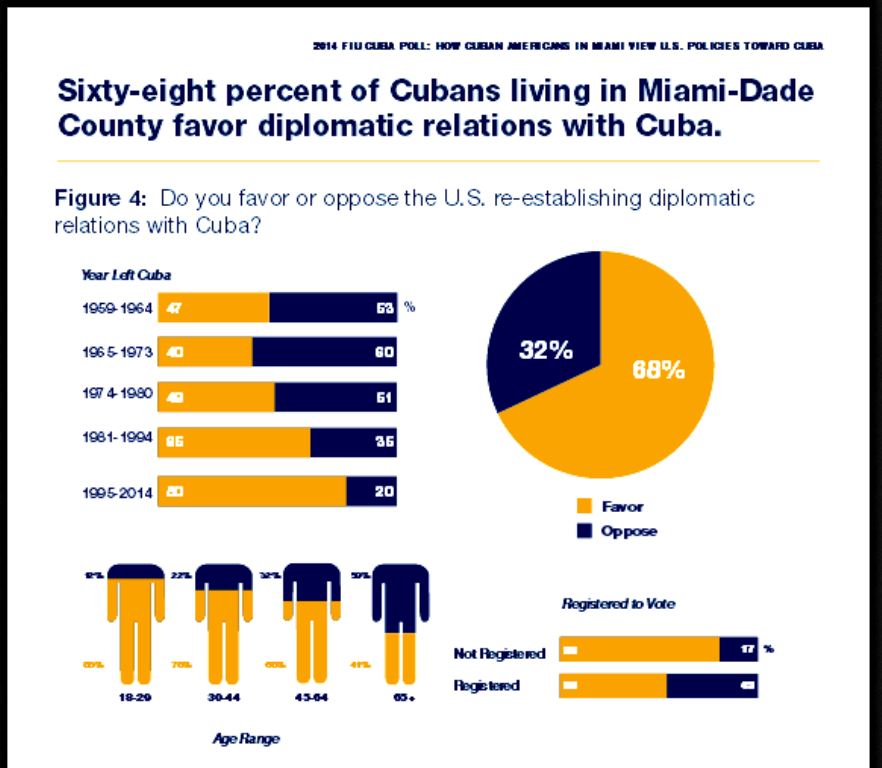At least 25 companies in tax havens had Cuban links
Nora Gámez Torres
The Miami Herald, June 7, 2016
The Cuban government used the Panama law firm involved in the Panama Papers to create a string of companies in offshore financial havens that allowed it to sidestep the U.S. embargo in its commercial operations.
El Nuevo Herald identified at least 25 companies registered in the British Virgin Islands, Panama and the Bahamas and linked to Cuba.
The documents found in the Panama Papers are dated as far back as the early 1990s, when the Cuban economy crashed following the end of Moscow’s massive subsidies to the island. But Cuba kept its links with some of the firms until very recently.

Listed as a director of one of the companies is a brother of Gen. Luis Alberto Rodríguez López-Calleja — husband of Cuban ruler Raul Castro’s daughter and powerful head of the Cuban armed forces’ business conglomerate, GAESA.
The Panama Papers, documents leaked to the International Consortium of Investigative Journalists and shared with the McClatchy Washington Bureau, Miami Herald and El Nuevo Herald, among others, contain hundreds of thousands of pages from the files of Mossack Fonseca, a Panama law firm with offices in 33 other countries.
Offshore corporations: The secret shell game
Offshore corporations have one main purpose – to create anonymity. Recently leaked documents reveal that some of these shell companies, cloaked in secrecy, provide cover for dictators, politicians and tax evaders.
Sohail Al-Jamea and Ali Rizvi McClatchy
The documents reveal previously unknown details about the Cuban government’s economic maneuvers abroad and the foreign companies that do business with Havana as some of the firms tried to hide Cuba’s hand in business deals to skirt the U.S. embargo.
Russia-Lebanon-Havana connection
One of the more intriguing schemes mentioned in the documents puts Cuba at the heart of a deal to sell Russian oil to Latin America through a company registered in Panama by the Bassatne family. The family controls BB Energy, a conglomerate founded in Lebanon in 1937 that buys and sells 16 million metric tons of crude and derivatives each year. One Bloomberg report showed BB Energy had $10 billion in revenues in 2012.
BB Naft shareholder Wael Bassatne told El Nuevo Herald that his company did not violate the U.S. embargo because it is not registered and does no business in the United States.
The Bassatne family incorporated BB Naft Trading S.A. in Panama, with Jürgen Mossack as a director. The company, which has offices in Havana and other countries, was created “to handle, among other things, its relationship with oil-exporting Latin American countries and with Cuba,” Mossack Fonseca lawyer Rigoberto Coronado wrote in an email.
BB Naft does not appear, however, among the subsidiaries listed on BB Energy’s Web site. They include BB Energy Trading Ltd., BB Energy Management S.A., BB Energy Holdings NV., BB Energy B.V., BB Energy (Asia) Pte. Ltd., BB Energy (Gulf) DMCC and BB Holding S.A.L.
BB Naft did business with Cuba between 1992 and 2001, trading oil for sugar “for $300 million, with credit facilities at low interest rate,” Coronado wrote. He added that in 1996 “there was agreement on a triangular Russia/Cuba/Naft Trading S.A. deal to deliver Russian fuel to other markets for a number of tens of millions of US$.”
One of the markets may have been Ecuador. A letter sent in 1998 by a Mossack Fonseca employee to the international trade office at state-run Petroecuador referred to documents sent by BB Naft “required to register the company.” A 2005 fax also points to an initial contact with the Venezuelan government’s Petroleos de Venezuela (PDVSA).
The relationship between the BB Energy Group and Petroecuador appears to have lasted until recent days. Petroecuador contracted BB Energy (Asia) Pte. Ltd., in February of this year to import 2,880,000 barrels of diesel fuel. In 2015, BB Energy won Ecuadoran contracts for more than three million barrels of naphtha, a petroleum distillate.
The Russian oil scheme appears to have been affected by the agreement between Cuba and Venezuela to exchange oil for medical services, and BB Naft expanded its work in Cuba in 2007 to include “the sale of spare parts and batteries for autos and trucks, work boots, farm machinery, hardware for USD 5.3 million.”
Records of a meeting in Dubai in March of 2011 reflect a decision to significantly reduce the capital of BB Naft, held by BB Energy Holdings NV., from $8 million to $1.050 million. Riad Bassatne and his son Wael remained owners of the remaining shares. Instructions for the change were sent by Iulia Ispas, legal adviser to BB Energy Trading Ltd.
Emails exchanged by Mossack Fonseca lawyers also point to company operations in Syria and Iraq.
One lawyer for BB Naft, Noureddine Kabalan, asked Mossack Fonseca in April of 2008 to create a power of attorney so that “the empowered person can be authorized to sign on behalf of the company in Syria and Iraq for specific transactions.”
A Reuters news agency report shows that the mother company, BB Energy, was still sending petroleum to Syria in 2011. Global Policy Forum, a non-government agency that monitors the work of the United Nations, also included BB Energy in a list of beneficiaries of the so-called “oil bribes” distributed by Saddam Hussein to recruit international support for weakening U.N. and other economic sanctions against Iraq.
BB Naft was listed in the Cuban registry of foreign companies operating on the island as of April of this year, with Riad Bassatne as director. Its Havana address is Centro De Negocios Miramar, 5ta Ave. E/ 76 Y 78, Ofic. 310. Edif. Santiago De Cuba. Miramar Playa.
BB Energy registered a company in Texas, BB Energy USA LLC., in 2014. Its official address is the same as that of BB Energy Trading: 140 Brompton Rd., London, SW3 1HY, United Kingdom.
Peter Quinter, an expert on U.S. embargo laws and former head of the International Law section of the Florida Bar Association, said the U.S. trade embargo on Cuba generally bars a company with a U.S. presence from doing business with Cuba directly or indirectly — through an offshore branch, for example. Such deals, however, may be authorized by the Treasury Department’s Office of Foreign Assets Control or the Commerce Department’s Bureau of Industry and Security.
BB Naft shareholder Wael Bassatne told El Nuevo Herald that his company did not violate the U.S. embargo because it is not registered and does no business in the United States.
“All the other commercial activities were not affected by any sanctions because these regulations do not exist as such,” he wrote in an email, adding that “Mexico, Canada and the European Union have laws prohibiting their citizens and companies from obeying U.S. sanctions” on Cuba.
Many of the Mossack Fonseca emails and documents show the relationship between BB Naft and the BB Energy group through the years.
In 2003, for example, BB Naft agreed to guarantee and meet the obligations of a loan obtained by BB Energy (Asia) Pte Ltd. from the Standard Chartered Bank of Singapore. The instructions to the BB Naft shareholders were dated and signed in Beirut, but the agreement for the guarantee was signed by lawyers and verified by the office of the BNP Paribas bank in Marrousi, Greece.
In another document, the lawyer Kabalan instructed Mossack Fonseca in 2005 to issue new shares for BB Naft because the originals had been sold to BB Energy Holdings N.V., a Curacao-based company publicly listed as part of the BB Energy group. The new certificates, for 800 shares, were to be issued in the names of 10 members of the Bassatne family, including 160 shares for Riad Bassatne.
The Web page of the Cuba-Lebanon Businessmen’s Council lists a Riad Bassatne as a member of its board of directors and describes him as “president of BB Naft Trading and member of the board of directors of BB Energy.”
Wael Bassatne nevertheless insisted that “there are no commercial or financial relations between BB Naft Trading S.A. and the BB Energy Group.” He added that BB Naft’s activities in Cuba included “the sale of spare parts and agricultural machinery.”
The company opened an office in Cuba, he explained, because he has been “a resident of Havana like his wife and three children, all of them born in Cuba” and Cuban citizens.
Secret Cuban companies
Other leaked Mossack Fonseca documents show the interwoven complex of offshore companies created by the Cuban government to import and export goods and invest funds abroad with the assistance of the Panamanian law firm.
Starting in the early 1990s, Cuba’s Ministry of Foreign Trade, through the Compañía Panamericana S.A, used Mossack Fonseca to create a string of disguised companies in Panama, the Bahamas and the British Virgin Islands that bought and sold medicines, cigars and food.
Panamericana’s former director, José L. Fernández de Cossío Domínguez, is listed in the leaked documents as a director of Miramar Investment Corporation Ltd, Euro Foods Ltd, Racuza S.A, Caribbean Sugar Trader, Mercaria Trading S.A. and Sabradell S.A. Fernández more recently served as Cuba’s ambassador to Japan and economic attaché at the embassy in Paris.
The news website Diario de Cuba has identified the director of foreign investments at the Foreign Trade Ministry, Déborah Rivas Saavedra, as another of the directors of Racuza, Miramar Investment Corporation Ltd and Caribbean Sugar Trader.
The leaked documents also show that Guillermo Faustino Rodríguez López-Calleja, brother of Gen. Luis Alberto Rodríguez López-Calleja, was appointed in 1999 as a director of Pescatlan S.A., a company incorporated by Mossack Fonseca in the British Virgin Islands in 1991 with an initial capital of $50,000. A letter sent to the Panamanian law firm in 1997 requested assistance organizing “a fishing operation in the Turks and Caicos Islands with Cuban-flagged fishing boats.”
The Mossack Fonseca documents nevertheless refer to Pescatlan as a Cuban company and do not identify the true owners of the company. Its ownership was in the form of anonymous bearer shares — the owners are whoever has those shares.
There have been unconfirmed reports that Luis Alberto Rodriguez Lopez-Calleja divorced Deborah Castro Espin in recent years, but he remains in charge of Grupo de Administración Empresarial S.A., (GAESA) and the government’s signature port of Mariel development project. The Cuban military is estimated to control at least 60 percent of the island’s economy.
Guillermo Faustino Rodríguez López-Calleja also appears as the representative of seven foreign companies registered in Cuba: Acemex Management Company Limited; Caroil Transport Marine Limited; Nautilus Shipping Overseas Corp.; Northsouth Maritime Company Limited; Gulf Lake Enterprises Ltd.; Acando Shipping Co. Ltd.; and Gilmar Project Finance Establishment. They have addresses in the Miramar and Old Havana neighborhoods of the Cuban capital.
The Panama Papers also show that Labiofam S.A., the marketing branch of Grupo Empresarial Labiofam, a Cuban government company that produces vaccines, medicines and other products for the control of carriers of diseases, owns shares in BioAsia Ltd. That company was founded with an investment of 10 million euros from Vietnam, southern Asia and the United Kingdom and lists Mossack Fonseca as its registered agent.
Labiofam S.A. bought all the shares of BioAsia Ltd. in 2009. Longtime Labiofam director José Antonio Fraga Castro, a nephew of Fidel and Raúl Castro, retired in 2014 amid the so-called “revolutionary perfumes” scandal, sparked when the company sought to sell perfumes inspired by Cuban revolutionary hero Ernesto “Che” Guevara and former Venezuelan President Hugo Chávez.
Little is known inside the island about the Cuban government’s companies abroad, but Havana economist Omar Everleny wrote in the early 2000s that there were “more than 100 entities with the participation of Cuban capital, founded as mixed [state-private] companies or as branches of companies based on the island” operating abroad in areas such as “construction, agriculture, food, medicine, mining, finance and science.”
Everleny, recently fired from the University of Havana’s Center for the Study of the Cuban Economy, noted the paradox that a country that “lacks the capital for its own development has invested in other countries.” The motive, he speculated, is the U.S. embargo “that forced the establishment of a network of companies around the world to warehouse and market products from the sea, among them lobsters and shrimp.”
Today the export of products from the fishing industry is carried out through those companies,” he said, adding that Cuban officials also created “an international network of companies to warehouse and sell the famous Cuban cigars.”
One knowledgeable source who asked to remains anonymous said the Cuban government also has registered companies, ships and airplanes in Panama and other countries to get around the embargo and avoid court-ordered seizures to settle its many debts abroad. Those front companies, the source added, also help Cuba carry out foreign trade transactions in U.S. dollars, forbidden by the embargo until President Barack Obama lifted the restriction earlier this year.
“Every time something was purchased in dollars, it could not be done because the Cuban checks in dollars were automatically canceled because the dollars belong to the U.S. Federal Reserve,” the source said. “So the seller had to be told that payment would be in euros from a bank in Spain, for example, and Cuba lost on the currency exchange.”
Companies registered abroad are “legally not Cuban,” according to the source, and could be used for dollar-denominated transactions.
The leaked documents confirm the existence of these types of foreign companies, with at least partial Cuban government capital. Much of the Mossack Fonseca correspondence on those companies involves updates of company registries and boards of directors, payment of fees and requests for letters of financial status required to open bank accounts or sign contracts. Mossack Fonseca was listed as the registered agent for most of the companies,
Swiss lawyer Albert-Louis Dupont-Willemin appears as a director of several of the Cuban companies, among them Miramar Investment Corporation Ltd. and Pescatlan S.A. The Panama Papers show Dupont-Willemin as a director of a total of 49 offshore companies in the British Virgin Islands, five in Panama and two each in the Bahamas and Seychelles islands.
In one email exchange in 2011 involving a British company representing ALIMPORT — the Cuban state agency that handles food and agricultural imports, valued at nearly $2 billion in 2014 — that wanted to open an account with the BBVA bank, a bank employee in Great Britain asked why documents related to Miramar Investment Corporation Ltd had been notarized in Switzerland.
Emails exchanged by Mossack Fonseca lawyers point to BB operations in Syria and Iraq.
An accountant for the British company All Worlds Food Ltd, Jose Da Silva, answered: “I do not know the reasons why the documents were certified by a Swiss notary. I understand Mr. Dupont-Willemin is a Swiss lawyer and I believe it is for the documents to be more transparent and trustworthy. It is assumed that companies will have more trust in documents certified in Switzerland than in Cuba.”
The Swiss lawyer did not respond to El Nuevo Herald requests for comments on this story.
Hiding behind offshore companies
The Cuban government also hid its control of offshore companies by creating still other limited liability companies whose sole objective was to appear in registries as owners of the offshore companies — and disguise Cuba’s hand in them.
That’s the case of Racuza S.A., incorporated in the British Virgin Islands. It held all the shares of Euro Foods Ltd., which was registered in the Bahamas and in turn represented ALIMPORT.
And the case of Sabradell S.A., headed by Panamericana director José L. Fernández de Cossío Domínguez for a time and dissolved in 2008. Sabradell was the sole owner of Resimevis Ltd, a Mossack Fonseca client since 1995 dedicated “to general commerce of medical products and equipment.”
What’s more, a 2015 email indicated that the sole purpose of Curtdale Investments Ltd., registered in the British Virgin Islands, was to hold the shares of Ardpoint Company Inc., which in turn owned Altabana S.L. and Promotora de Cigarros S.L., two companies registered in Spain and involved in the sale of Cuban cigars
One of the directors of both Curtdale and Ardpoint starting in 2011 was Hernán Aguilar Parra, executive director of Grupo Empresarial de Tabaco de Cuba, known as TABACUBA, the government’s tobacco monopoly. Aguilar also has served as a deputy in the legislative National Assembly.
At times, however, the shield of anonymity over Cuban companies is not very effective. A convoluted email by a Cuban lawyer for Tecnica Hidraulica, registered in the British Virgin Islands (BVI), showed all its shares were held by Cuba’s Técnica Hidráulica, S.A. The difference: The name of the BVI firm has no Spanish accents, the Cuban company’s name does. The BVI company was dissolved in 2015.
The efforts to hide the Cuban government’s hand in the offshore companies means that its officials, lawyers and other employees used as stand-ins could eventually become the effective beneficiaries of the shares in those companies
A lawyer for Panamericana, Katiuska Peñado Moreno, and a former commercial attaché at the Cuban embassy in London, Alejandro Gutiérrez Madrigal, are listed as the beneficiaries of shares in Miramar Investment Corporation Ltd. worth $50,000.
The long list of companies linked to the Cuban government or active in Cuba also includes Sanford Management Financial Ltd.; Commercial Mercadu S.A. (linked to Panamericana); Amadis Compañía Naviera S.A.; Seagull and Seafoods, S.A.; Mavis Group S.A.; Octagon Industria Ltd; Travelnet; and Venus Associates Inc., among others.
Companies with Cuban capital or activities on the island
